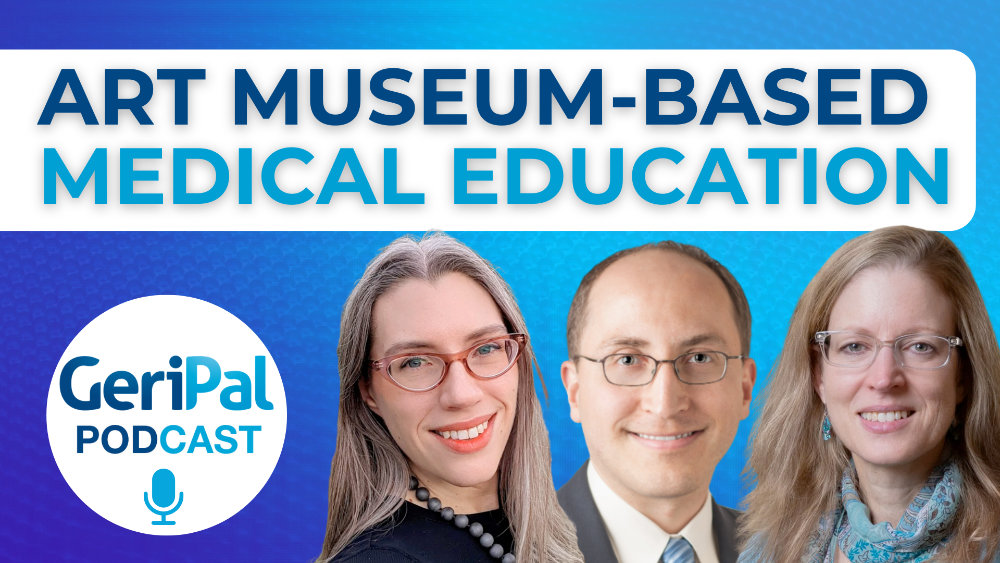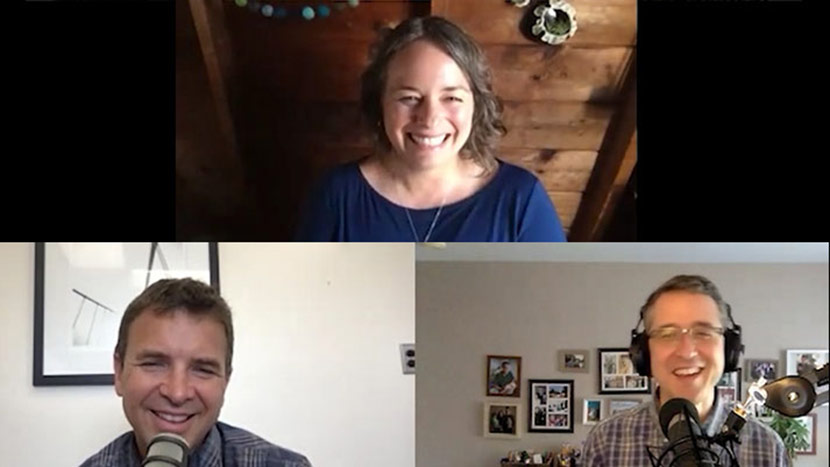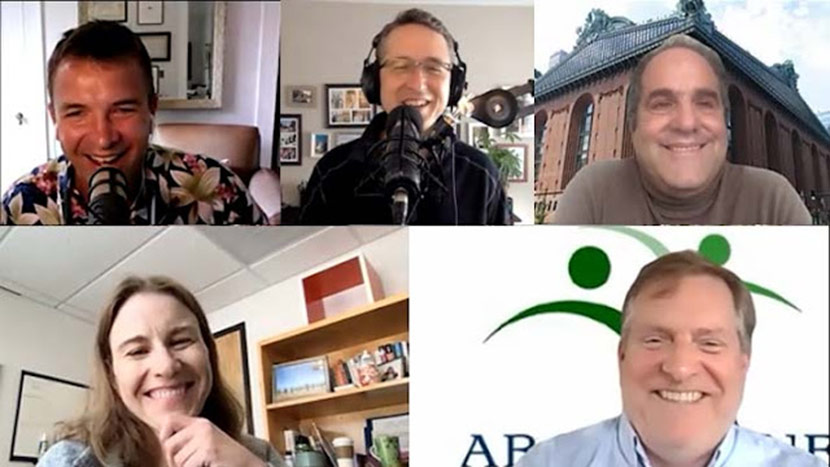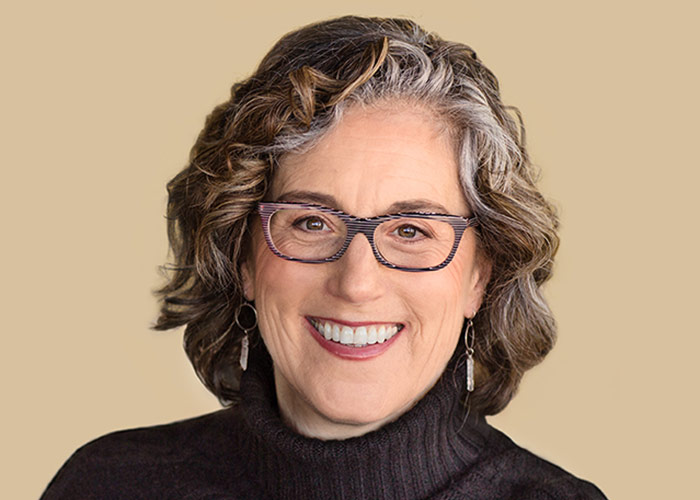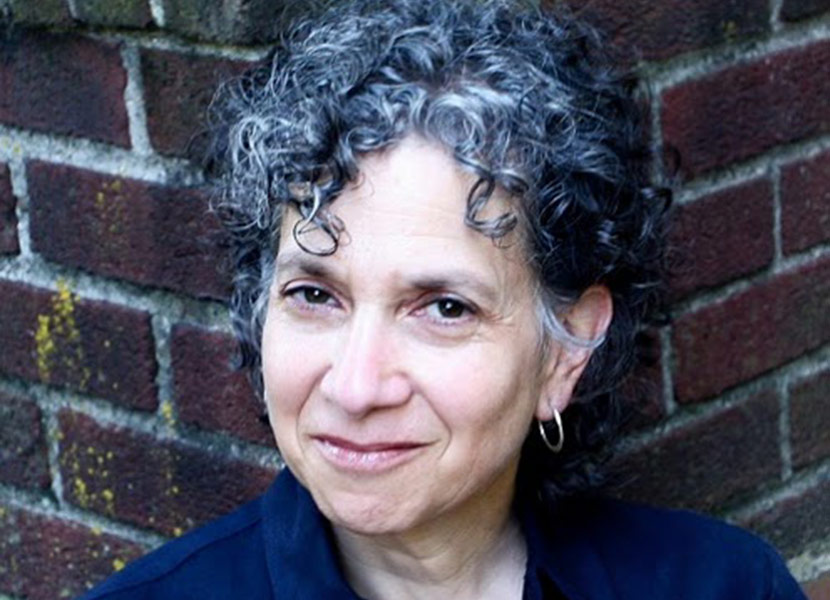
This week’s GeriPal Podcast features NY Times journalist Paula Span about what we can do as educators, researchers, and as clinicians to collaborate with journalists and the media in general. Some general timps that we discuss include:
- It’s ok to pitch a story to journalists (even medical education ones)
- Tell them why this topic/story is important (or not)
- Be available to reporters – they are often on a tight deadline
- Speak in clear language. That includes avoiding medical jargon like “comorbidities”
- Journalists use twitter, so should you
- Don’t forget, media comes in all shapes and sizes.
During Paula’s extensive career as a reporter, she has written for the Washington Post, Philadelphia Inquirer, the Boston Globe, the Wall Street Journal, Newsweek, New York Magazine, Esquire, Parenting, Glamour, Ms and several city magazines. Paula currently writes at The New York Times for The New Old Age, and trains the next generation of journalists at the Columbia University Graduate School of Journalism.
Enjoy! Transcript is below.
Eric Widera, @ewidera
Eric: Welcome to the GeriPal Podcast. This is Eric Widera.
Alex: This is Alex Smith.
Eric: Alex, who’s our guest today?
Alex: Today we have Paula Span who is a writer at The New York Times for The New Old Age and she also teaches journalism at Columbia.
Welcome to the GeriPal Podcast.
Paula: It is my high honor to be here.
Alex: It’s so great to have you here.
Eric: Paula we start off with the guest asking for Alex to sing a particular song. You have a song for Alex?
Paula: I did. It’s my old favorite, because I always so happy to hear a song that was not about a blue-eyed blond, that I asked him to sing Van Morrison’s “Brown-Eyed Girl.”
Alex sings “Brown-Eyed Girl” by Van Morrison.
Paula: He’s leaving out the verse about how the brown-eyed girl got to make love in the green grass behind the stadium.
Alex: That will be at the end of the podcast.
Paula: Okay.
Alex: Exactly.
Eric: So Paula, you just gave a talk to us at UCSF on, I love this title, “Working with the enemies of the people”.
Paula: I think it’s actually even, “Making friends with the enemies of the people”.
Eric: Making friends with the enemies of the people. I was fascinated by the talk, and you gave a lot of us some very helpful hints about how we can work with journalists, and the importance of it for our field. I remember you specifically saying, “Cause there will never be enough Pediatricians or Palliative Care doctors to meet the needs.”
Paula: Ideally you would be having these conversations, one on one, with your patients face to face and their families, but there will never be enough of you and you know all this stuff that a country with an aging population needs to know. So we’re are the translators and the middle people that can help get your research out, your message out, because our readers want to know this stuff too.
Alex: I was wondering if we could actually talk with our listeners on this GeriPal Podcast about a couple of things that we can do as educators, as researchers, as clinicians, in working with media. What do you find helpful when you’re talking to us?
Paula: Well, probably the biggest single thing, is just to be available to respond. Reporters are usually not experts in healthcare, they need to talk to people who are, and they are always in a hurry -they’re frequently in a hurry.
So, you’ll send out a bunch of emails and if you will respond to me, even if you can’t talk to me right away and let me know that we’ll set up a time to talk, then at least I can relax a little bit and think, whew, there’s somebody who will help me with this.
When people don’t respond, I don’t have time to pursue you, I just move on to the next person, and that opportunity often goes away.
Alex: Is it helpful for us to suggest other names, if we’re not …?
Paula: Yes. You have other responsibilities, clearly, besides talking to reporters, so if you’re busy, you’re traveling, you’re on vacation, or I’ve happened to ask you something that you’re not all that knowledgeable about, to send me on to somebody who is; to give me that person’s email or give me that person’s cellphone, or even make the introduction via email, is hugely helpful.
It’s really helpful to some people, the text of relevant studies, if you had them handy, because often Times reporters are not subscribers and all we can see is the abstract. So if you want us to know what’s in the study, we should know that, to have someone send it to you, is really helpful too.
Alex: One of the other things that you emphasized is speaking in clear language, not using medical jargon. It’s so ingrained in us to speak in this language, it’s so hard to break out from it.
Is there a way that you can emphasize that point to our listeners?
Paula: Partly that’s my job, is to be the translator. My personal trigger word is comorbidities and I will stop an interview right in the middle, or even in the middle of a sentence and say, “Wait, no one is going to understand what that means.”
Why would you not think about it. You talk like this all the time. You have your own language but I would just say, “Could you rephrase that? Could we just say people with multiple health problems?”
Alex: So you’re saying multi morbidity is not a better word.
Paula: Not better. Morbidity it’s not a word in common parlance. Sickness is, disease, any of those things.
Alex: What’s the word for pamphlet?
Paula: It was called a “Deprescribing Patient Empowerment Intervention.”
Alex: But they meant pamphlet.
Paula: Well possibly they meant brochure, but what they meant was some printed thing. It was one of my personal favorites. Or even things like, food insecurity, as opposed to hunger, which I grant you are not precisely the same thing but it’s close enough.
Because if readers get confused by the language you’re using, it’s not just that they’re confused, they’ll just stop. They’ll just stop reading or listening, this is not for me, and they’ll click off. All the work you did to educate the reporter and all the work that the reporter did to try to be … It just goes away.
Alex: Right. Can we talk about, in academics, a lot of us are used to publishing papers, and we get the proofs, and we read through them, and we make corrections, and then we send it back to the editors, but there’s a different sort of process with an article in New York Times or any sort of reporter. You don’t, for example, share the exact content of what you did publish.
Paula: Right. I do what you do with an editor. We’ll send it back and forth and work on the wording and stuff, but what I can’t do, and people in medicine ask me to do because it seems like a normal thing to them is, “Yeah, I’d be happy to see the article before it’s published.” What they mean is, “I’ll try to help you make it accurate”.
They’re not trying to control me, or censor me, but I can’t do it. Ethically, when I think something’s ready for publication, it goes from me to my editor and not to anybody else. Because if I make this exception for a Geriatrician, or a Palliative Care Specialist, I have to do it for anybody that asks.
Any politician, anybody who’s going to call a lawyer, anybody who’s going to tweet nasty things about me. We just don’t invite negotiation. I will review things with you for accuracy, I won’t let you rewrite yourself, and I won’t let you control what I write. It’s part of the independence of the press, you have to guard this.
Alex: You’re looking for both accuracy as a journalist, but also our judgment on “Why is this important?” Is that right?
Paula: Why is this important? Or do you think I’m actually … I’ve had people say, “I don’t think you should be following the line that you’re following. You’re not understanding what the issue is.” Or, “You’re going off on a tangent.” Or, “You’re giving undue attention to something that’s really trivial and off-topic.”
Not only do I want to get the numbers right and get your quotes right, but I want to understand the issue, and I’m not an expert, and you are. So if you think I’m barking up the wrong tree, I would appreciate your telling me why. Maybe I’ll make a change, or maybe my editor will, or maybe we’ll proceed anyway, but I’ll be better informed. I do, I want your perspective and not just the facts ma’am.
Alex: Now how can people get in touch with you if they have important articles that they want to share, that they think might be news worthy?
Eric: Or journalists in general?
Alex: Journalists in general?
Paula: Our email are usually, or Twitter handles, or Facebook links are usually on the article, or not to find out. Anybody can google me and find three different working emails for me. I have a website because I have a book that I promoted. Journalists are not hard to get to. There’s no reason not to get in touch with them. The worst their going to say is, “I don’t think so, but thanks.” Or “Stay in touch, maybe they’ll be another idea.” We’re always looking for ideas.
Eric: Are journalists on social media like Twitter?
Paula: Yeah. I think, virtually, the entire staff of The New York Times is on Twitter, Facebook a little less. I don’t do Instagram personally because I’m not a visual person but yeah …
Eric: But you’ve had leads for articles from Twitter?
Paula: Oh yeah. I’ve had leads from the GeriPal blog.
Alex: I’ve heard about that before!
Paula: From other people from your shop Tweeting. I use Facebook as a way to find subjects, human subjects, that put a human face on an issue. So I’ll post, “Anybody knows somebody who’s being treated with this drug?” Or, “Have you had this illness, and what was your experience? I’m trying to find people to talk to me.”
Yeah, we’re all over it.
Eric: Why are journalists on Twitter? It seems like most of them are, is there a reason behind that?
Paula: Because it’s what we do. You traffic in information. Journalists are terrible gossips. Any newsroom is just full of gossip because that’s why you do, you don’t turn it off when it’s not about the President. Share what you know, and people have opinions, people want other people to see their story, so I always post my column and other people post their work. We read each other, it’s just part of the sea that you swim in.
Alex: You said something about journalists; that you’re always on a deadline, it’s always … short piece of information. Twitter is conducive to that. You just get the little headline. The concise punchline. You don’t have to wade through something.
Paula: I was actually a little disappointed when they started allowing photographs. I just want the facts. Now, of course, I’m used to it, and I like them. It becomes an issue somewhat because we’re supposed to be skeptical but also non-partisan. Devoted to truth but not promoting a particular candidate or point of view. You have to careful of your Twitter presence or your social media presence, not to look like you’re in some camp or other.
Eric: How do you decide what’s news worthy? You must get pitched all the time, what are the key elements?
Paula: I say it’s like pornography, it’s very hard to define but you’ll know it when you see it. It’s a sense that there may not be a whole new subject but there was some new thing to say about it. Some study that confirms what people have always thought, or some study that shows that it’s not what people thought, or a growing number of people with x problem, or some new program that addresses a long standing problem.
There will always be some service articles that are just about, “How do you choose a nursing home? When do you need a Geriatrician? What’s a Geriatric Care Manager?” There will always be some of those because there’s a new cohort every few years that needs that information. Aside from that, your editor will have this attitude whether they say or not, like why are you telling me this now? You have to have a reason of “Why now?”
Alex: The other thing you talked about, when you were with us for Grand Rounds is – media comes in all shapes and sizes.
Paula: Right.
Alex: Can you tell us a little bit about that? What you meant?
Paula: It used to be so much easier, and I know that people are returning my calls and responding to my emails, and thank you, if that was you, not of my winning personality but because of those three words; New and York and Times, but now the media universe is vastly broader and people are doing good health and science reporting in a number of places that did not exist ten years ago. Places with names like Buzzfeed, or Vox, or The Daily Beast. STAT News is only two years old. ProPublica. Some of these are non profit so that’s a new model.
So, just because someone is calling you and they are not from The LA Times, or The Boston Globe, doesn’t mean that they don’t have an audience, that they are don’t have an expertise, and that’s not a good place for you to give an interview or to share your research.
One of your colleagues told me today that she got a call from a reporter for Nautilus and she didn’t know what it is, but I know what it is. It’s a well regarded science magazine, and she was right to have the interview with Nautilus, even though there was no Nautilus ten years ago. Now there is.
Alex: I wanted to ask you about The New Old Age, if we could, which is a terrific, the best aging and care giving column in the US, and it’s consistently been so. So I know it’s evolved over time from being a blog to a twice monthly column.
Paula: Right.
Alex: I wanted ask you, what stories in The New Old Age you are most proud of?
Paula: Well, I don’t know if this might not have been the one that got the most circulation but we did a couple of columns about these agist prejudice that exists within long term care facilities. There was a very upscale, continuing care retirement community in Norfolk, VA. As usual, it was a sort of tiered service, so there was an independent living, an assisted living, and a nursing home section. They had a beautiful waterfront view dining room, and at one point they decided that only independent living people could use it, and the assisted living and the nursing home residents had to use their own dining rooms, which caused this huge uproar about how unfair it was.
People had paid boatloads of money to be in this facility and their children got a lawyer, they were very angry, they got in touch with me and also the local paper in Norfolk. Did several stories on this. Eventually, management backed down, but meanwhile, the Department of Justice decided that this was a violation of the Fair Housing Act, and they leveed … they had a big fine, but a fine on the ownership. They also went after another place that I wrote about. We felt like we did good there.
Alex: Right. You helped people. What is coming out? Or do you want to give our readers some sense of ideas that are peculating, that they might expect to see in the next few months.
Paula: I think not too much, cause then someone will scoop me. So I think I’ll just keep that to myself if you don’t mind.
I have this long lead time. I can only publish twice a month, so someone else can come and write about it in The Washington Post or The Wall Street Journal next week, and then it’ll look like I’m a follower instead of a leader.
So, I think I won’t.
Alex: Yeah, the news cycles fast.
Eric: How do you come up with all these stories?
Paula: I thought initially, I can do this for maybe three years and then I’m gonna run out of material; not true. I read many of the journals. I read JAGS, I read New England Journal, I read JAMA and JAMA Internal Medicine, and various public relations people at various places are always pitching me ideas. Many of which are unsuitable but some of which work and then researchers themselves get to know me and tell me what they’re working on, and also nobody with an elderly parent is safe within 50 yards of me. Any story you tell me, I’m likely to say, “Hey, can I talk to your mother about that?”
So it comes from a variety of places, but it is not running out. Since I’ve here, the list has gotten much longer.
Eric: So if we pitch a story, is that bothersome for a reporter? Or are they looking for that? Or is it a mixture depending?
Paula: Right. Don’t pitch me about the appointment of your new staff person; because I don’t care about that. Don’t tell me that this is a good story because next week is National Alzheimer’s Week; because I don’t care about formal weeks, months, or years. Don’t pitch me stuff about Pediatrics please. Know what I do.
Aside from that, I think … I’m happy to hear from people who have ideas because there’s a constant need for material. If it’s something smart and interesting, if I’ve done something on it, I can’t do it again for a while, but I’m not mad to hear from people who have good ideas about Geriatrics and Palliative Care. I can’t always oblige, I only have 25 columns a year now. It was easier when we posted twice a week, or three times a week on the blog.
But no, I’m happy to hear from people. I don’t think … You hear a certain amount of grousing about getting pitches from flacks. Flacks being the unflattering word for public relations people. It’s usually because they’re so off base. Don’t send me stuff about fashion. Have you ever looked at anything I’ve done? If it’s something about what I actually do, I’m pleased to have that connection.
Alex: Right.
Alex: Where do you see journalism evolving?
I mean, The New York Times went through this evolution. They were describing yesterday where had 60 blogs at one point.
Paula: We had 60 blogs at one point because it seemed that blogs were going to be the savior of print media. Then that turned out not to be true. Now we’re doing a lot virtual reality, a lot of video, a lot of specialized digital sections. If I knew that, I could be a rich person. All that we know is that people are trying everything all over.
Alex: A lot of innovation.
Paula: Just a lot of innovation. Some of them are gonna fly and some of them are gonna die. Who would’ve thought that Jeff Bezot would help resuscitate the Washington Post and yet it’s going, great guns. Yet other places that are 100 years old, and just look anemic.
I teach grad students and Entrepreneurial was not a word we ever used to use for journalists. That was someone else’s problem. You write the stories, someone else will figure out how to market them, how to publish them, how to distribute them, now that could be part of your role too.
So it’s really uncertain. It’s kind of scary, and kind of exciting, and I don’t know if that’s a poached curse which probably is not really a curse, “May you live in interesting times.” These are interesting times if you’re a reporter.
Eric: Is it a depressing time? Exciting time? To be a reporter? What’s the … ?
Paula: Both, because people are getting laid off in droves. There are many fewer newspaper reporters than there were 20 years ago. If you’re an older person like me, I’m trying not to be coy about my age, so I’ll be 68 this summer. To be 68 and be a working journalist, I am so lucky. I just feel lucky every day.
On the other hand, my students are going out and they’re doing really extraordinary stuff and I’m so proud of them. They’re negotiating all this. It’s normal to them.
They don’t remember some bygone day when you signed on to be a reporter at a paper and you were there for 30 years. Who does that? So they’re just everywhere, trying everything, and that’s kind of cool to see.
Eric: You have a fair amount of people who listen to us, who are also medical educators, they do research but it’s not the typical research in journals. But they’re doing really innovative stuff as far as, trying to change how med students talk about end of life issues, or palliative care issues, or developing new geriatric curriculum.
Is there an intersection between that and journalists?
Paula: There could be, if what you eventually you come up with is something that consumers will need to know and use. If you’re mostly working within the profession, it’s a little too inside baseball and I’m going hae trouble getting ordinary people who are not medical students, or medical educators to pay attention.
But if it’s going to end up helping people with their Advanced Care Planning, or it’s going to end up with some kind of checklist that people could use, something that the public could use, as well as medical people could use, then maybe.
These things about what’s a story, what’s not a story, are highly subjective. What interests one person, might not interest another. It’s not like there’s some kind of algorithm that I could suggest, “Yes, that is something the New York Times would like. No, that is not.” It’s how it hits a certain person on a certain day.’
Eric: Well, I feel like most of the stuff that I read, and that really impacts me is not about a population but, you write about a single person.
Paula: I try to do that whenever I can, it’s the bait. How do you get somebody to read a story about a disease they don’t have, a condition they’d never thought of, a trend that they may or may not be part of, how do you lure them in? One time honored way that reporters do this is to put a human face on an issue or a trend.
So if I’m writing about the enormous increase in the number of older adults who are living together without being married, in couples. The data is really interesting but I have to find that couple. I used Facebook to find this couple in Philadelphia that they take care of each other’s health, they are each other’s health care proxy, they share the cost of their two homes, they go to concerts and theater, and they’re not married. I needed those people.
Eric: So Alex, how about you end this with a song?
Alex: You want to join me in the chorus?
Eric: I’ll do a little bit of it.
Alex: Oh yeah! This is the verse that Paula requested
Alex and Eric sing “Brown-Eyed Girl” by Van Morrison.
transcript edited by: Sean Lang-Brown
